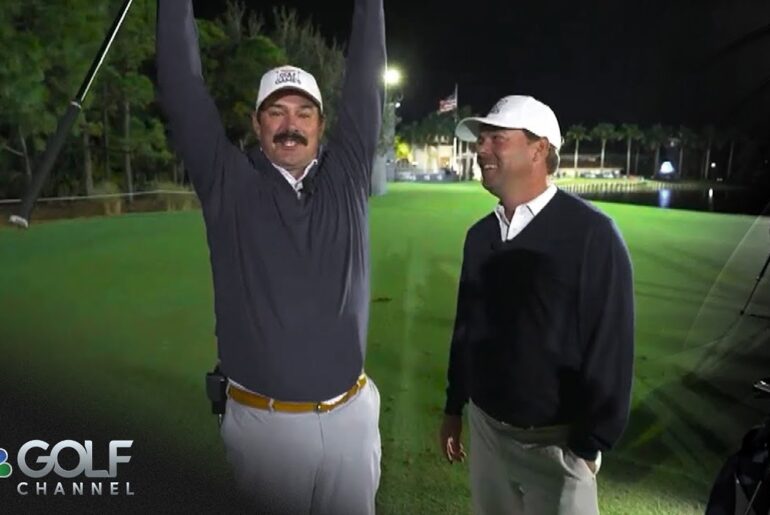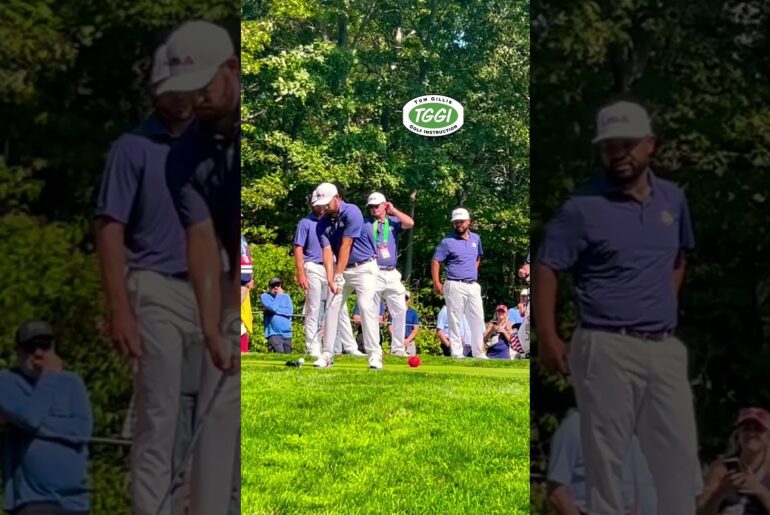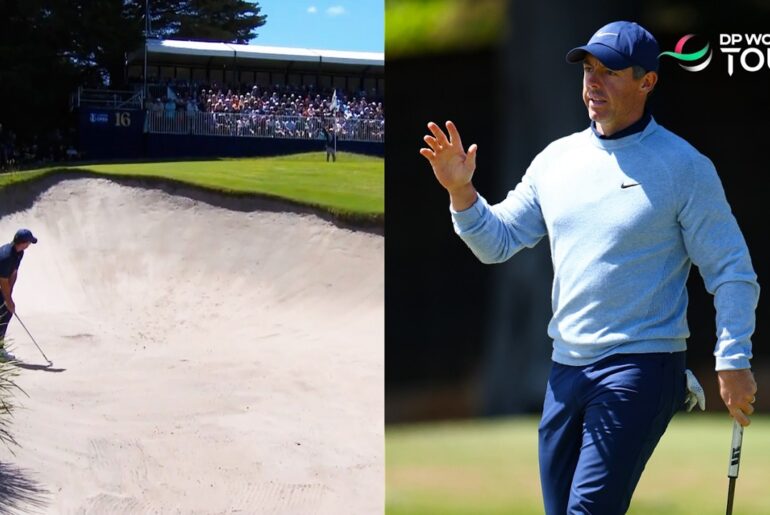Viktor Hovland Ryder Cup envelope rule controversy
Explore Viktor Hovland’s first comments on the upsetting Ryder Cup envelope rule that played a role in Europe’s victory at Bethpage Black.
Hovland withdrew from singles due to a neck injury, invoking the controversial rule that halved his match with Harris English.
He shares his thoughts on the rule, feeling bad for not playing and for English’s missed match.
Learn about the rule’s history, established in 1971, and debates from captains Keegan Bradley and Luke Donald on changing it.
Hovland discusses sports spirit, sympathy for injuries, and potential rule changes in golf tournaments.
Watch as Europe’s Shane Lowry secured the win with a birdie putt, leading to Europe’s 15-13 victory over the US.
Ryder Cup drama, golf rules, injury impacts in sports.
ViktorHovland #RyderCup #EnvelopeRule #Golf #BethpageBlack
Picture this. You’re a top golfer giving it your all in the highstakes world of the RDER Cup, only to be forced out by an injury that derails your chance to compete and sets off a debate about a peculiar rule that could alter the entire match’s vibe. Victor Havland is breaking his silence on that very situation. And trust me, it’s got everyone talking. Let’s dive into his take on the envelope rule that played a role in team Europe’s thrilling victory at Beth Paige Black. For those new to the RDER Cup, it’s like the ultimate team golf showdown between the United States and Europe held every 2 years. It’s not just about the scores. It’s a celebration of camaraderie and rivalry that stretches back decades. Victor Havland, the Norwegian star, finally spoke out publicly on Tuesday during a press conference before the DP World India Championship, his first event since the Rder Cup drama unfolded. Back at Beth Paige Black, Havland aggravated a nagging neck injury during Saturday’s four bowl matches, which meant he had to sit out Sunday’s singles session. This triggered the infamous envelope rule, a pre-agreed upon guideline between both teams. Essentially, if a player gets injured and can’t compete in their singles match, the game isn’t forfeited outright. Instead, it’s considered a tie, awarding half a point to each side. The opposing players name is sealed in an envelope beforehand. In this case, it was Harris English from the US team. Both Havland and English. This rule dating back to 1971 has only been invoked four times in writer Cup history with the last instance in 1993. It’s designed to keep the spirit of fair play alive even when injuries strike. Havlin described the whole ordeal as pretty upsetting. He felt awful not just for missing out on the action himself, but also for Harris English who was perfectly fit to play yet didn’t get the chance. The whole situation was pretty upsetting just the fact that I didn’t get to play and I felt really bad for Harris who also didn’t get to play a match even though there was nothing wrong with him. Havlin shared, “He just didn’t get to play and he was upset about that and I feel very bad for not being able to compete.” At first, with Europe dominating and holding a massive 7-point lead, this rule seemed like a minor detail in what was shaping up to be a historic European triumph. But here’s where it gets controversial. The US team staged an astonishing comeback, clawing back from that deficit in one of the wildest reversals the RDER Cup has ever seen. That lone half point suddenly became a big deal as the scores tightened on Sunday. In the end, it didn’t flip the result. Europe clinched it 1513. But imagine if Hovland had been required to play through his injury or if the point had gone fully to the US. The entire afternoon’s energy might have shifted dramatically. Shane Lowry sealed the win for Europe with a dramatic closing birdie putt, but the buzz around the rule lingered. US captain Keegan Bradley came out strongly in favor of reform. I think it’s obvious to everybody in the sports world in this room. Nothing against Victor, but that rule needs to change by the next RDER Cup. On the flip side, Europe’s captain Luke Donald stood firm. The rule is the rule and it’s been in place for a long time. Havlin chose not to comment while at Beth Page, but the question arose again on Tuesday. He opened up about it being tough, explaining that in most sports, an injury withdrawal typically means a loss for your team. It’s tough. I think we’re so used to in sports that if you can’t play because you’re hurt, obviously that should be a loss of point, Havlin said. And this is the part most people miss. He argued that the RDER Cup’s unique tradition calls for a different approach, a gentleman’s agreement rooted in empathy and the longevity of the event. But I think in the spirit of the Rder Cup and the spirit of the game and the history of it, knowing that this Rder Cup is just a part of many, many RDER Cups to come. I think it’s more of a gentleman’s agreement that okay, you were hurt this time and maybe the next time there’s a guy on the US’s team and we’re all kind of sympathetic about the person being hurt and not being able to play. Havland brushed off accusations that the rule so there’s other ways around it, he noted. I don’t think there’s any ideal way to do it. But the most I think that’s just a better way overall to do it. Even though it’s just a tough situation, and at the end of the day, I think we’d all be wanting to go out there and play. For beginners wondering about RDER Cup strategies, this rule highlights how team scheduling works. Players are often matched based on pairings, and injuries can disrupt that delicate balance. As for his recovery, Havland revealed he didn’t touch a club for over a week to let his neck heal. He tested it with a couple of rounds at home and felt okay, ready enough to return in India. He anticipates avoiding too many drives as swinging that club tends to cause the most discomfort. It’s a reminder of how physical golf is even for pros. This rule debate isn’t just about one match. It touches on broader questions of fairness in sports. Is preserving tradition worth the potential unfairness, or should modern rules prioritize earned victories? What do you think? Does the envelope rule uphold the RDER Cup’s gentlemanly spirit, or is it time for an overhaul? Share your thoughts in the comments. I’d love to hear if you side with Havland, the captains, or have a counterpoint of your own.







